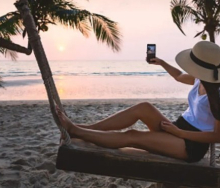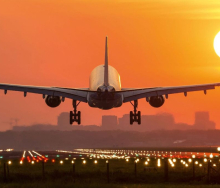Travel agents in the digital era are by now quite familiar with the challenges posed by online booking sites and the deluge of information that's just a click away for prospective travellers. Staying afloat in these rough waters might seem daunting, but it's far from impossible.
The COVID-19 pandemic highlighted the true value of travel agents. With complicated restrictions, flight changes and destination protocols, travellers learned that booking through professionals saves time, stress and money. While some may have previously tried to DIY their travel planning, consumers now widely understand the benefits of an expert guide.
For travel agencies, there is no better time to capitalise on this positivity and enhance their visibility. Whether serving leisure travellers or corporate clients, agents must invest in marketing technology and AI tools.
These can automate administrative tasks, freeing you, the agent, to focus on high-value work like customer service. Tactics that foster community connections, micro-influencer partnerships and digital content creation – these allow agencies to showcase their indispensable expertise. Travel agents who wish to thrive in the post-pandemic world cannot afford to skimp on their own visibility.
With a little creativity, strategic thinking, and a solid understanding of your unique value proposition, you can make a splash and connect more effectively with your clients.
Here are just some of the suggested ways to achieve this:
*Fostering community connections
Take your services directly to potential clients. Consider organising community-based travel planning events where your locals hang out – perhaps a golf club, local coffee shop or community centre. During these events, you can guide a small group through the process of planning their travels, providing them with your invaluable expertise.
*Collaborating with micro-influencers
Partnerships should play a key role in your marketing strategy. Consider teaming up with micro-influencers in the travel space. These individuals, with their modest but dedicated following, can offer a higher engagement rate at a lower cost. Just ensure that their niche aligns with your speciality. Offering them a discounted trip (partnering with travel suppliers) in exchange for authentic promotion could significantly boost your visibility.
*Sharing behind-the-scenes content
Travel is complicated, right? Prospective clients who think they can do it themselves have no idea how much goes on behind the scenes. So, show them! This strategy not only humanises your business but also fosters trust and credibility. Share photos and videos of your team planning itineraries, finding the best fares, or even problem solving. Encourage satisfied clients to share testimonials, and keep your followers updated with fresh content additions to your website.
*Leveraging AI for content generation
The rise of artificial intelligence (AI) is a game-changer for content generation. Use AI tools to generate relevant, engaging content for your website or blog – think of unique destination guides or travel tips. With AI, you can automate personalised emails at scale and even auto-generate social media captions and posts that sound human-written. This can save you hours of work while ensuring a consistent stream of fresh content for your audience.
*It's all about relationships
The most valuable marketing happens after the initial booking through strong relationship marketing. Leverage your current clients by sending useful, interesting and engaging emails with relevant destination resources, special offers, or prompts to get them planning their next adventure. Keep the conversation going through social media by sharing photos from their trips or inspiring articles. Schedule a quick post-trip check-in call or survey to get feedback for continuous improvement. When clients feel genuinely cared for, they will come back and rave about you to friends. This loyal community of brand advocates driven by word-of-mouth referrals converts better than any advertisement.
*Use marketing tech
To truly maximise marketing efforts, agencies need to leverage technology through an integrated marketing tech stack. This suite of tools working together can simplify and scale processes that used to require extensive manual work. For example, Hootsuite allows easy social media scheduling across platforms from one dashboard. Mailchimp automates customised email newsletters to thousands. Canva templates help quickly create on-brand graphics and content. CRMs like Zoho store client data, interactions, and trip details in one place. Form-building tools like JotForm simplify enquiries and bookings. With the right martech stack, agencies can reach wider audiences while freeing up time for more meaningful client interactions. A reliable tech foundation is critical for taking agency marketing and operations to the next level.
To emerge from the noise, your marketing should showcase your expertise, build consumer trust and, most importantly, highlight the irreplaceable human touch you bring to your service. In an increasingly digital world, it's this personal connection that sets you apart and ensures your continued success in the travel industry.














